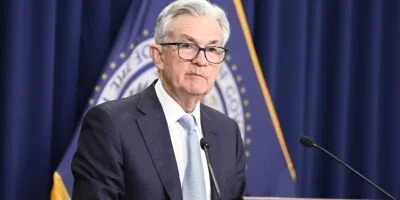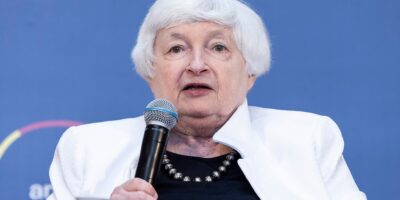Argentina’s New President Should Reframe Its Central Bank Even If He Later Proceeds To Eliminate It

Javier Milei, Argentina’s president-elect has captured global attention with his proposals to dollarize the economy and close the “Banco Central de la República Argentina” (BCRA), the country’s central bank. He aims to end one of the world’s highest inflation rates, which shows no signs of slowing down. While removing monetary policy from the control of Argentinian politicians is central to his vision, these reforms will not be the focus of the initial track of his incoming administration. Instead, the appointments for his future cabinet suggest that the initial economic policy will concentrate on reducing the fiscal deficit and rectifying the central bank’s compromised balance sheet.
Consequently, Milei must redefine the legal and political structure of the Argentine Central Bank to establish a more predictable and independent monetary policy detached from the treasury. Only through a confidence-building institutional reform, devoid of fiscal dominance deviations, can the BCRA be reshaped to curb high inflation. Even if the goal is to eliminate the central bank, reframing the institution is necessary for executing the transitory monetary policy when conditions permit. Empirical evidence from Latin American countries shows that an improvement in central bank independence is associated with a reduction in the inflation rate and a decrease in the likelihood of a high inflation episode.
The call to reframe the central bank does not imply that independence from political power can be achieved entirely, or that the institution’s closure could not lead to a better outcome. There is, however, no certainty about whether dollarization will be implemented or whether the central bank will be eliminated. Furthermore, if short-term fiscal deficit reduction is successful and monetary stability is attained, the cost of dollarization would rise, emphasizing the importance of relying on a trustworthy monetary authority. In the words of economist Leonidas Zelmanovitz, “Dollarization without fiscal prudence is not possible, and with fiscal prudence, it’s not necessary.” So, if a central bank were to exist, it would always be better to have a central bank designed to minimize deviations from the only aim that a central bank should have: preserving the value of its currency.
Rebuilding trust in Argentinian monetary institutions presents a challenging task. In 1992, the country granted independence to the Banco Central from the executive branch through legislative reform. A year before that, Argentina adopted its current currency, the peso, and established, by law, a one-to-one parity with the US dollar to overcome the hyperinflation of 1989-90. While inflation quickly dropped to low single-digit numbers, the peso’s parity to the US dollar collapsed in 2001 due to fiscal deficits, a heavy burden of foreign debt, and institutional rigidities undermining the stability brought by the currency board.
When the central bank regained complete monetary discretion, the executive branch expanded dominance over the monetary policy, and inflation resurged as money printing sustained the growing fiscal deficit. Reform of the central bank’s statutes eroded its independence in 2012, further blurring the lines between fiscal and monetary policy and allowing for more political credit allocation to finance spending. Since then, the country has been struggling with inflation again, reaching the current annual rate of 143 percent.
The lack of independence from political officials has intensified in recent years, with economic and political instability prompting the executive branch to temporarily appoint vacancies on the board. Although the Central Bank’s statute requires board members, including the president of the bank, to be designated by the nation’s president with the advice and consent of the Senate, this practice is not currently followed. No board member, for example, has been confirmed by the Senate since 2016, enabling the executive branch to appoint and remove board members without Senate approval. Consequently, there is little distinction between fiscal and monetary policy, as both are subject to the same incentives of the executive power.
In the recent history of the central bank, no president has completed a full term, with an average tenure of two and a half years since 1992, despite the term being six years. The lack of independence from the political process is evident. Only one president, Pedro Pou, served under two administrations of different political parties (under presidents Carlos Menem and Fernando de la Rua). Evidence also indicates that nondiscretionary monetary rules provide for institutional stability. Two of the three longest-serving presidents, Roque Fernandez and Pedro Pou, led during the convertibility law when inflation was nearly nonexistent. In 2010, Martin Redrado, about to complete his full term as central bank president, was removed from office by President Cristina Kirchner for refusing to use the bank’s reserve for fiscal expenditures.
Establishing trustworthy monetary rules is needed to incentivize fiscal responsibility. On average, each president witnessed a devaluation in the peso to the US dollar official foreign exchange rate of 77 percent when leaving office compared to when they took office. Constructing robust institutions that allow monetary authorities to act within constraints is even more imperative. While the flexibility of the first can be debated extensively (rigid or flexible rules), the robustness of the central bank’s institution must be unquestionable. The BCRA should regain its independent policy capacity and financial autonomy from the executive branch through a constitutional clause. Its mission should be unidimensional: preserving the currency’s value.
The next president of Argentina should refrain from selecting the central bank president as if it were a cabinet member. The selection process should be as independent from political decisions as possible, achieved by limiting the scope of appointee selection to the bank’s board through meritocratic ranking. All board members should serve longer terms and only take office once confirmed by the Senate. Furthermore, the removal process of board members should be independent from the executive branch, providing more stability to the office.
Restraining Argentine politicians from using monetary tools to finance expenditures is imperative for sustaining an inflation-free economy in the long run. Monetary policy will play a fundamental role in the economy if dollarization cannot be implemented. President-elect Milei should thus undertake major institutional reform regarding the BCRA statutes and name an independent policy-maker to increase confidence, provide predictability, and minimize discretionary monetary policy as much as possible.









